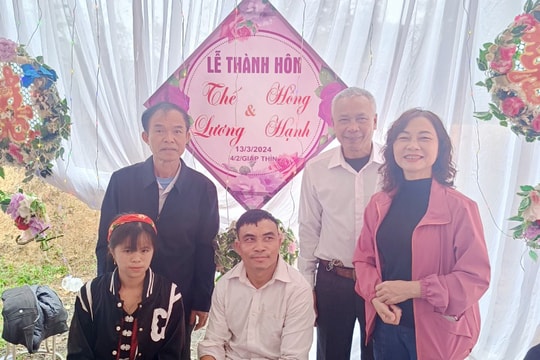Finding memories for the 'B-goers'
(Baonghean) - After nearly half a century since the country's reunification, the documents and memorabilia associated with the lives of "B-going" cadres have returned to their owners. The "B-going" documents recall touching and sacred stories,...
Simple and sacred
Tears rolled down her face, wrinkled by time, and Mrs. Duong Thi Dan’s hands trembled as she carefully held and turned each page of her husband’s file – martyr Dang Xuan Thinh. Mr. Thinh died in 1972 on the southern battlefield.
Holding the documents in her arms, the widow could not stop the flood of memories. After only 3 days of marriage, the young man Dang Xuan Thinh received a special mission and left in secret. A year later, his young wife Duong Thi Dan received the bad news. Her husband had died without ever knowing his child.
Suppressing her pain, the young woman decided to stay single to raise her children and take care of her elderly mother. “I am truly grateful to the Party and the State for their concern and help in obtaining these extremely valuable documents and relics. These are sacred relics, we will preserve them carefully so that our children and grandchildren will know and be proud of their ancestors, and from there follow their example and promote the family’s revolutionary tradition,” Mrs. Dan said emotionally.
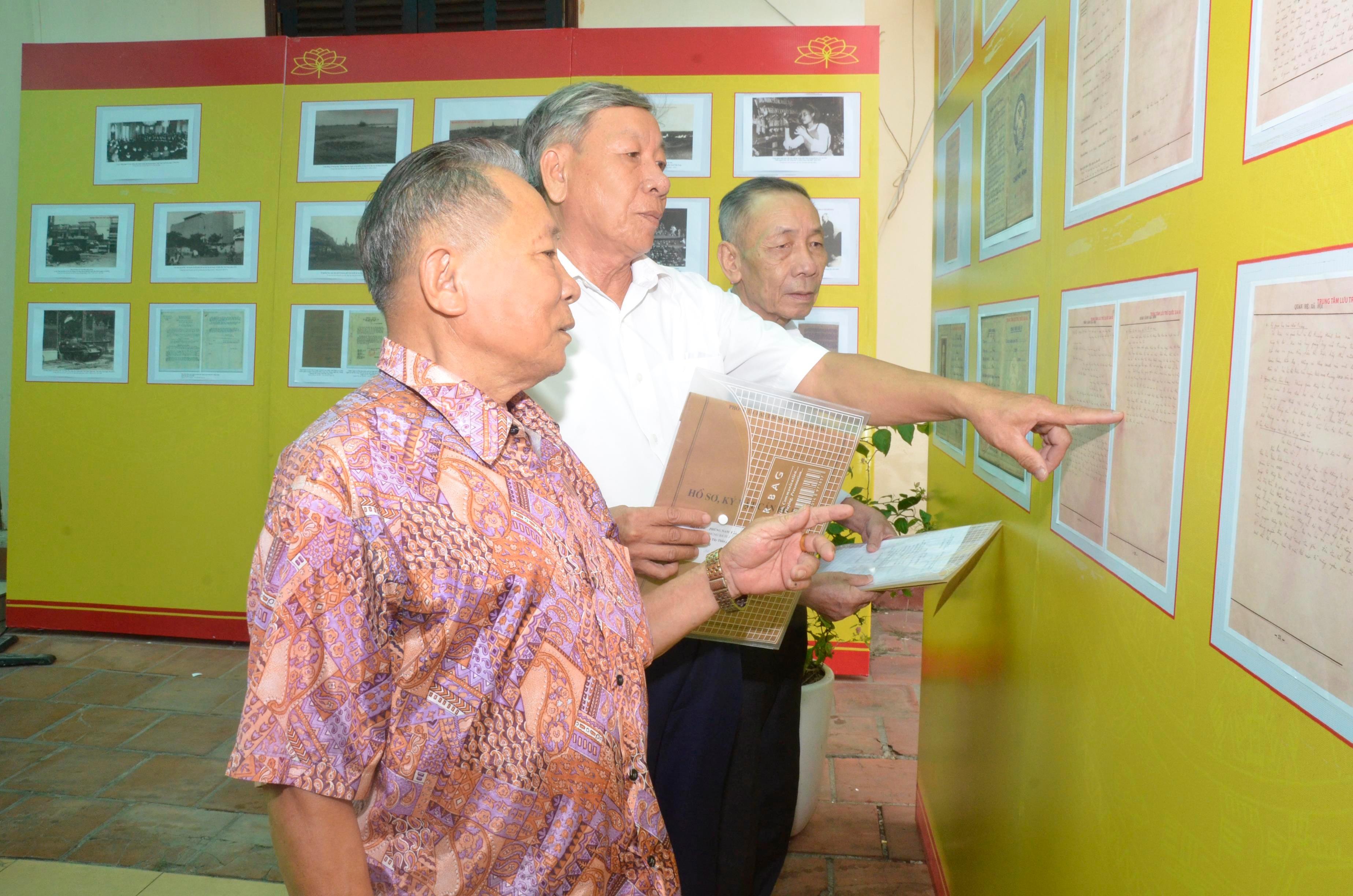 |
| Officials "going to B" visit records and memorabilia. Photo: Thanh Le |
Remembering friends and comrades who have passed away without ever having the chance to touch the relics – the sacred “memories” of a time of war and war. How can we forget the days of “cutting through Truong Son to save the country”, carrying guns on our shoulders, backpacks on our backs, overcoming mountain winds, rains, even malignant malaria, hunger and cold in the mountains to support the battlefields in the South.
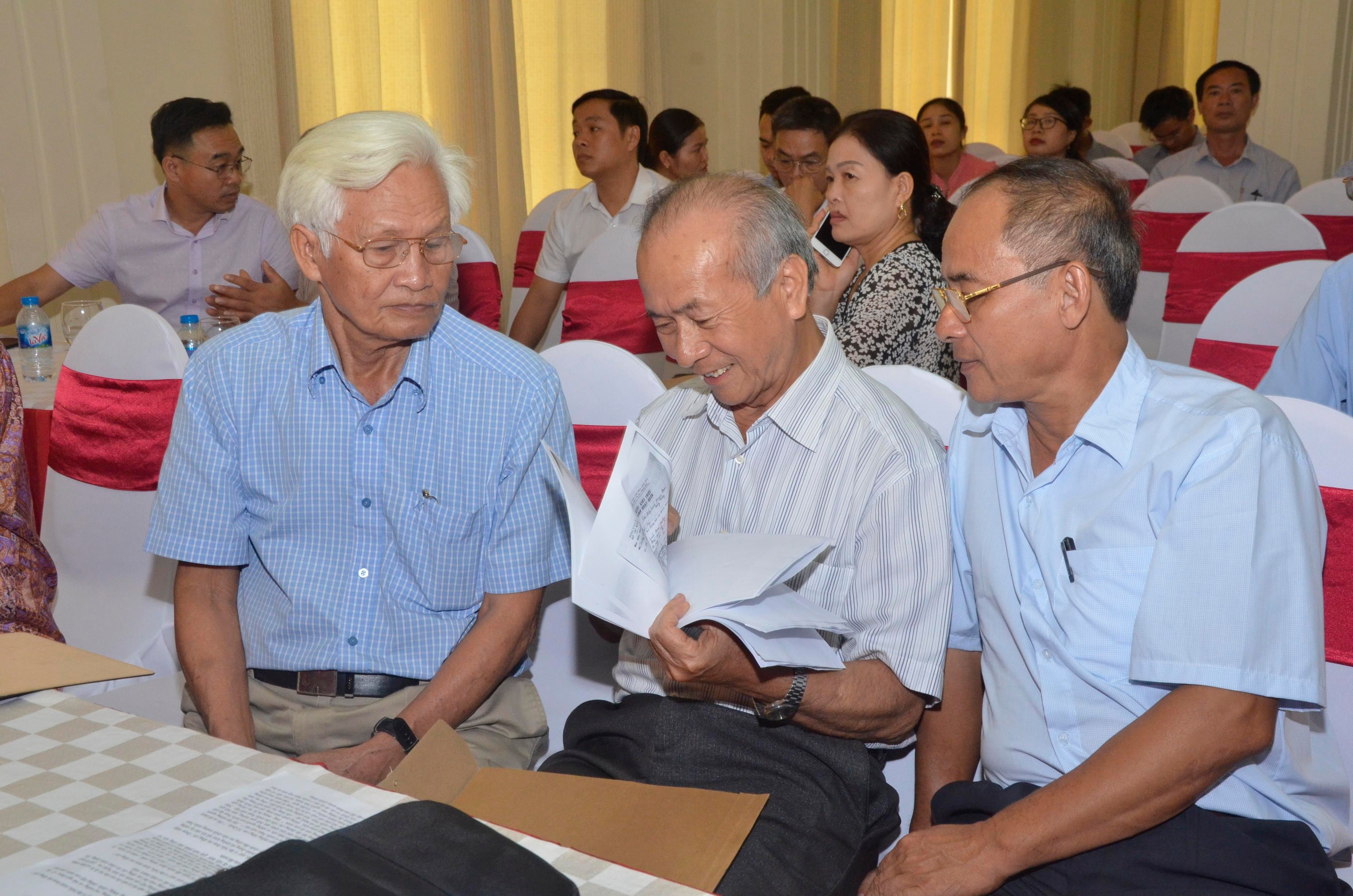 |
| The B-going officers were happy and moved when they received their documents back after decades. Photo: Thanh Le |
At that time, while teaching in Thanh Van commune (Thanh Chuong), in March 1969, Mr. Ngo Duc Tien was mobilized by Nghe An Department of Education to Hanoi to study politics and military skills. At the end of 1969, together with his comrades, he crossed Truong Son to the South. Here, the young cadre participated in educational work in liberated areas and in the areas between us and the enemy.
At the end of 1973, he returned to the Southern Liberation Education Subcommittee (B3) stationed in the Sa Mat war zone (Tay Ninh). After the 1973 Paris Agreement, Mr. Tien was also assigned to participate in writing news and articles for propaganda work on the Liberation Radio, broadcast every Monday and Thursday. "Now that the province has handed over the "going to B" files that I wrote with my own hands exactly 50 years ago (1969), I am very touched because I feel that I am still remembered, that I get to meet some old friends on the battlefield, and that I get to see the souvenirs of the beautiful years of my youth" - Mr. Tien shared.
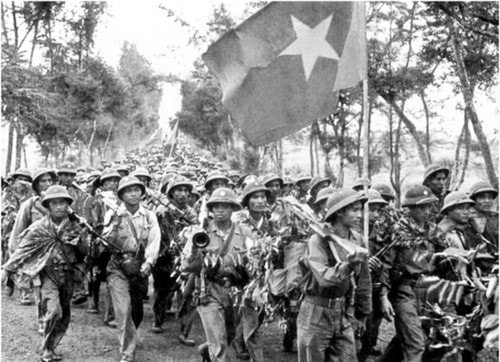 |
| Soldiers who left to support the Southern battlefield when they were just 18 or 20 years old. Photo courtesy |
The file is very simple, just: Volunteer application to go to B, Rice standard cutting paper from the Ministry of Education's training school in Ban Yen Nhan to the training school of the Peace Unification Committee, Party candidate introduction paper... Just that, but that will always be the most authentic luggage about a time of youth, about the difficult, heroic, beautiful and meaningful years of youth. "I plan to write a memoir about the years of participating in the war, this is a valuable document to help me fulfill this wish" - Mr. Ngo Duc Tien added.
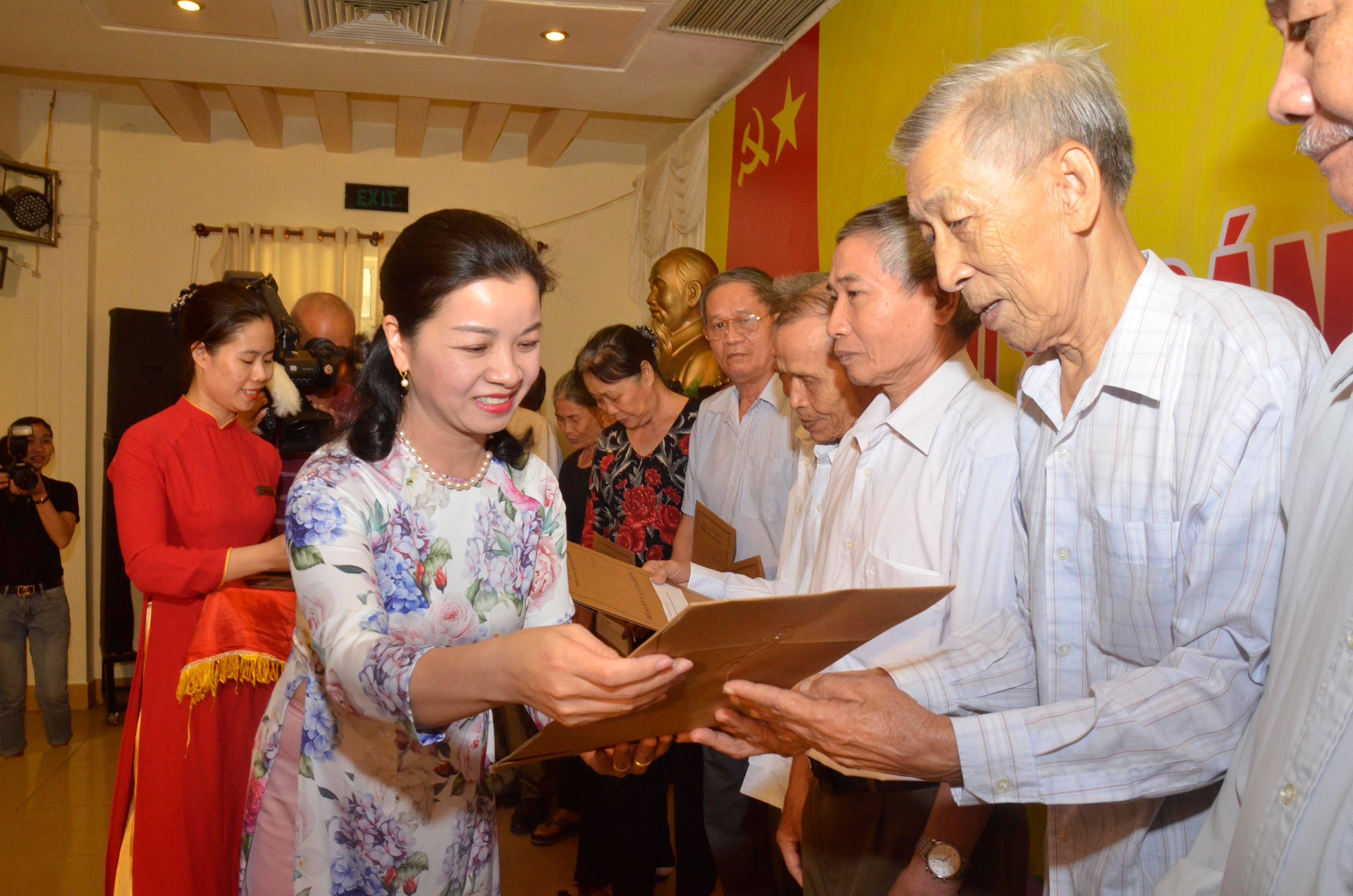 |
| Leaders of the State Records and Archives Department hand over documents to "B-going" officials. Photo: Thanh Le |
During the years of the resistance war against the US, in response to the requirements of the Southern revolution, tens of thousands of Northern cadres volunteered to quietly cross the Truong Son range to provide manpower support to the South. They were present in all battlefields, fronts, and fields. It was a secret but noble revolutionary mission, summed up in two words: “going to B”. It was the enthusiastic participation of the “going to B” force that contributed to the independence and unity of the Fatherland.
Nearly half a century after the country's reunification, on the occasion of the 72nd anniversary of War Invalids and Martyrs Day, the Department of Home Affairs held a ceremony to return files and relics to cadres who "went to B" during the resistance war against the US to save the country. “This is a political task, but even more so, it is the responsibility and sacred duty of those working in archival work who wish to contribute to preserving the memories and noble values of the nation in order to educate the traditions and patriotism of the young generations of Vietnam. We hope that this work will contribute to expressing gratitude and honoring the contributions of cadres who “went B”, providing information for individuals and relatives of cadres to resolve regimes and policies. On the other hand, it will create better conditions for authorities at all levels to resolve regimes and policies for people with meritorious services to the revolution. As for cadres who have “gone B” but do not have records, we will continue to coordinate with agencies, departments and branches at all levels to search for and return them to cadres and their relatives” - Ms. Nguyen Thi Nga - Deputy Director of the Department of State Records and Archives (Ministry of Home Affairs) shared.
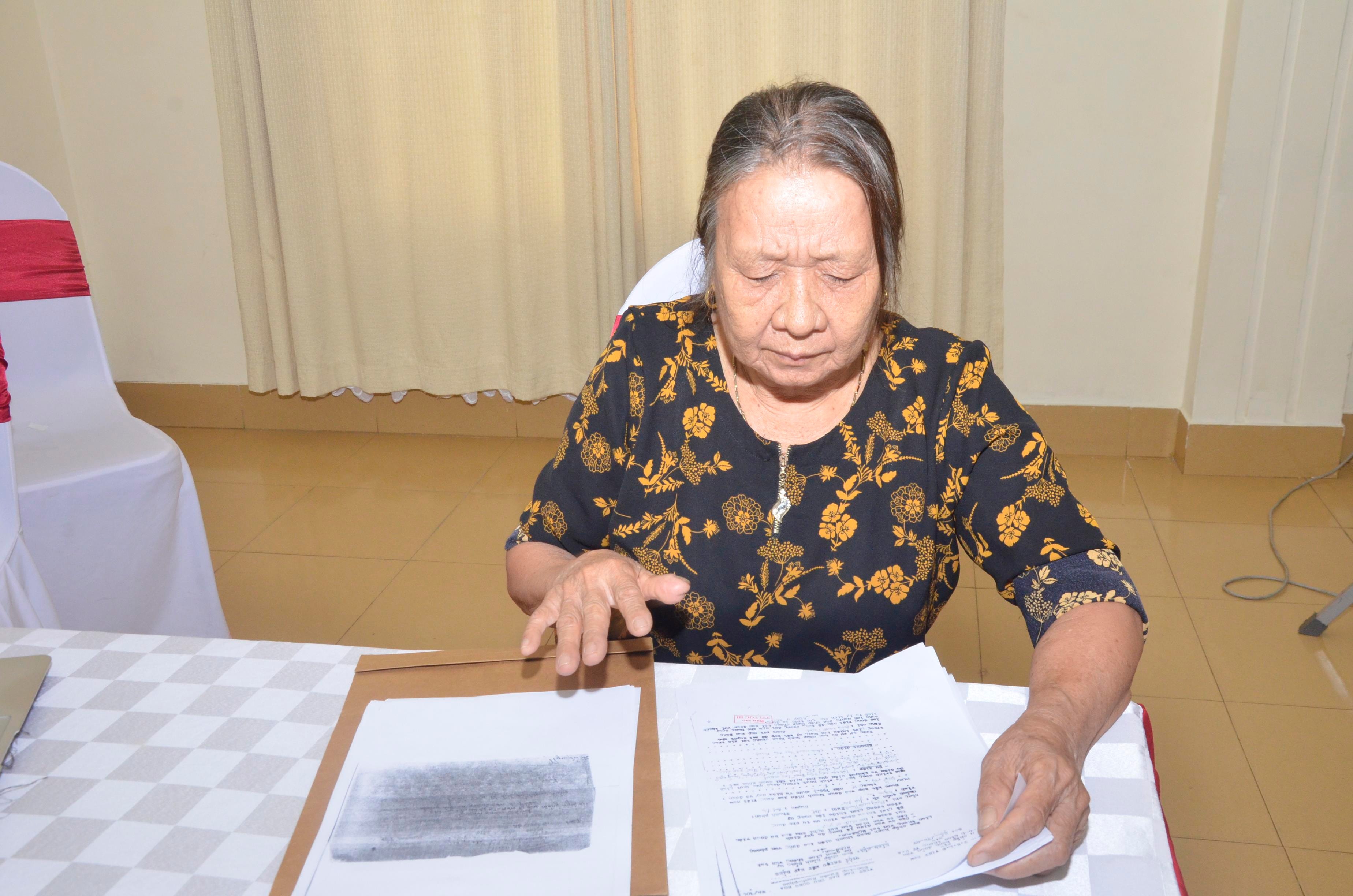 |
| Mrs. Duong Thi Dan in Phuc Son commune (Anh Son) emotionally holds each page of her husband's file. Photo: Thanh Le |
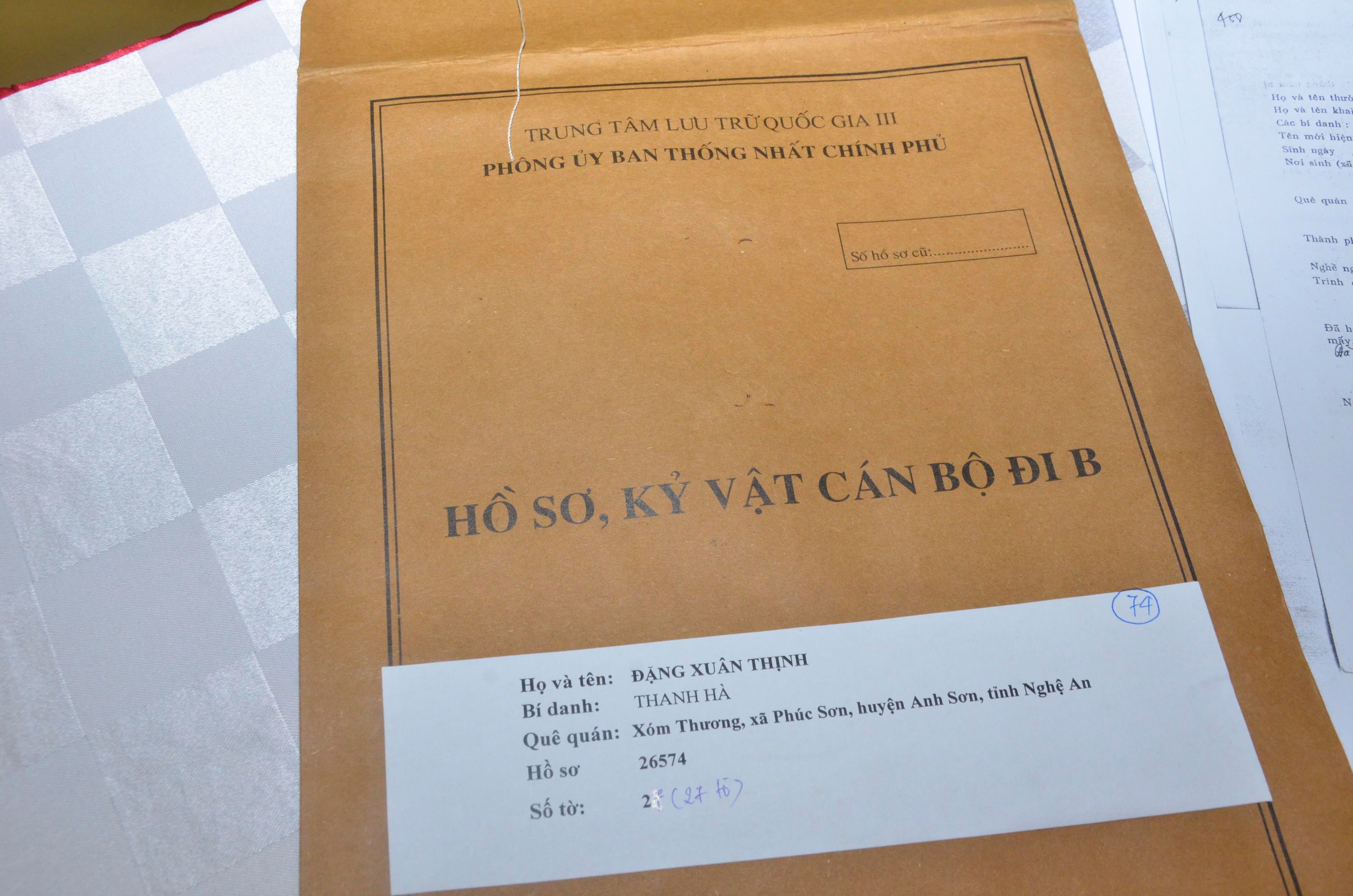 |
| The files of "going to B" cadres were handed to the individuals and their relatives. Photo: Thanh Le |
The souvenirs and personal belongings of the “B” people include: Cadre CV; Party member CV; Job transfer papers; Medals and personal items such as: pictures, diaries, letters, etc., but they have extremely great significance. Moreover, this is also a diverse source of documents and historical materials that prove a heroic period of the nation’s history, associated with the fate of tens of thousands of people in wartime conditions, the country was divided, and families were separated.
Returning the relics to the “B” cadres and their relatives is a practical action, thereby showing gratitude to the generation of revolutionary cadres and soldiers who sacrificed their blood and bones for national independence. Each set of documents is gradually returned to the right owner and relatives as a reminder of a very precious and proud historical period.
The Ministry of Home Affairs has implemented the policy of authenticating and handing over nearly 56,000 files and relics of "B-going" cadres from 89 provinces and cities (according to administrative boundaries from 1945 to 1975) to the provinces and cities to continue returning them to cadres and their family members. Nghe An province received 1,967 files of "B-going" cadres.




